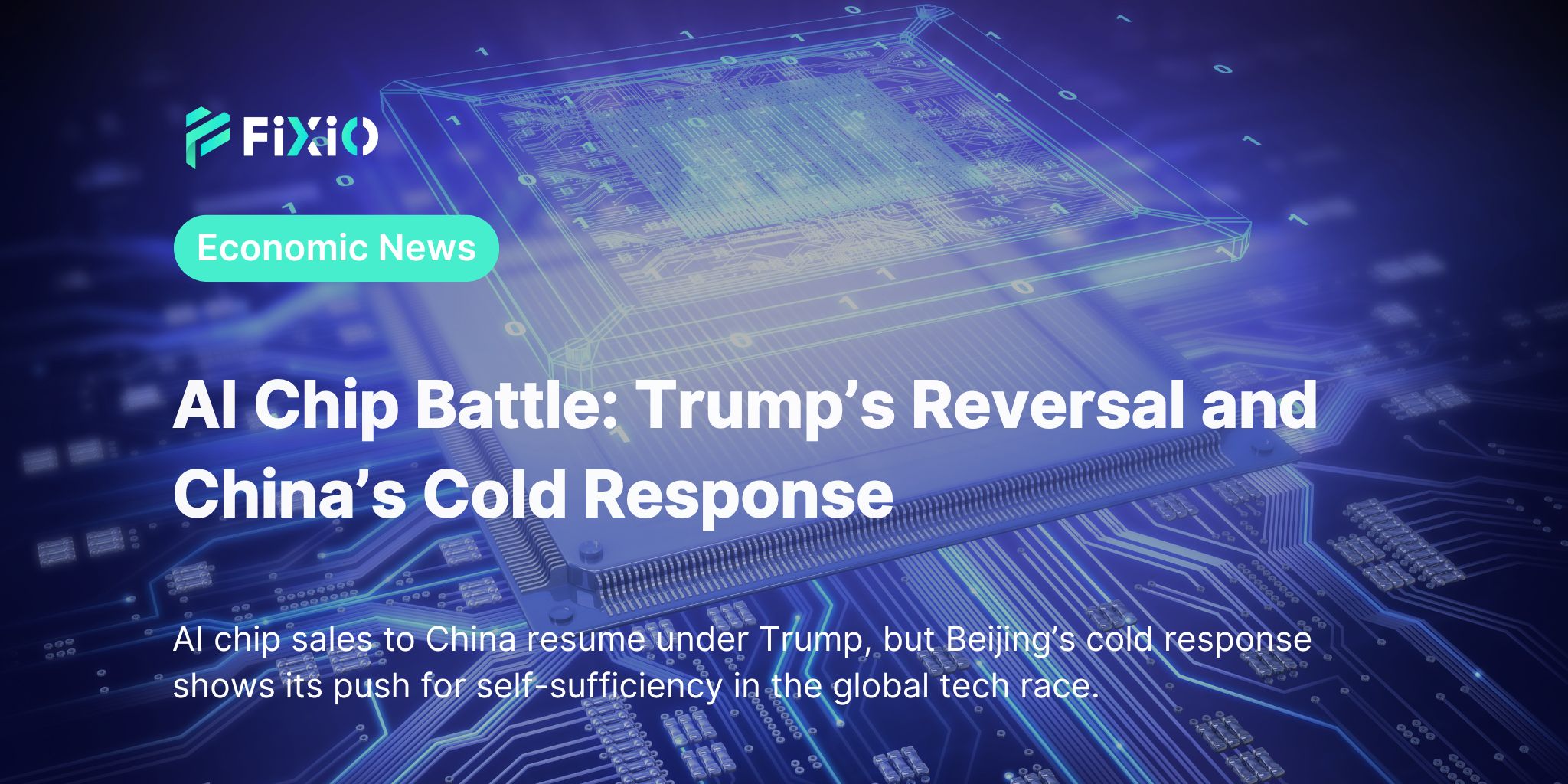
AI chip sales to China have taken a dramatic turn after former President Trump eased export restrictions—but Beijing’s lukewarm reaction signals a deeper shift in the global semiconductor game.
In a surprising U-turn, President Trump recently lifted restrictions on the sale of Nvidia’s H20 AI chip to China—a move that might appear conciliatory but was met with stern caution from Beijing. Despite long-standing appeals for fewer trade barriers, Chinese authorities responded by deeming the chip a security risk and advising domestic firms to steer clear. This response reflects a broader push toward self-sufficiency in semiconductor production and national tech independence.
The term “AI chip” refers to specialized processors designed to accelerate artificial intelligence workloads—ranging from machine learning to deep neural networks. These chips often rely on cutting-edge architectures tailored for AI computations and high memory bandwidth to handle large datasets efficiently. An essential technology behind many AI chips is High Bandwidth Memory (HBM), a high-performance RAM interface that enables rapid data flow between a chip’s memory and its computational cores.
Export restrictions have long been leveraged by governments to control the flow of advanced technology. In the United States, such measures fall under the framework of export control regimes, including the Export Control Reform Act of 2018 and the 2022 export control rules targeting advanced semiconductors. These policies aim to limit China’s access to AI chips capable of powering advanced research and military applications.
Nvidia’s H20 chip—designed specifically for export—is a downgraded version of its high-performance lines like the H100 and Blackwell. The U.S. initially banned its sale to China under security concerns, then lifted the ban following negotiations between Trump and Nvidia CEO Jensen Huang. Trump justified this by labeling the H20 as “obsolete” compared to newer models. Despite winning export approval, the Chinese government responded with caution—summoning Nvidia for explanations and urging domestic firms to avoid the chip. Authorities highlighted alleged security risks like remote shutdown capabilities, which Nvidia firmly denies.
This cold response underscores China’s ambition to build a robust and secure domestic semiconductor supply chain. While companies like Huawei are developing competitive AI chips—such as the Ascend 920, equipped with HBM3 and promising performance on par with the H20—their production is still ramping up. Regardless, China now controls increasing portions of its semiconductor ecosystem—rising from 17 % in 2023 to an expected 55 % by 2027, according to Bernstein estimates.
Still, Chinese tech giants like ByteDance, Alibaba, and Tencent remain interested in H20 despite official discouragement.
The H20 episode highlights global debates on balancing technological control with market incentives. Some U.S. critics argue the export re-opening amounts to a “pay-to-play” policy that undermines national security. Meanwhile, China’s aggressive push for semiconductor autonomy continues to reshape the global supply chain. Experts warn that isolating China might accelerate its innovation efforts, ultimately shifting the AI power balance.
The saga of the AI chip reform shows how technological, economic, and strategic considerations collide on the global stage. Trump’s reversal on the H20 sale delivered short-term relief to U.S. tech firms, but China’s restrained response signals that true leverage lies in building homegrown capabilities. For now, the global AI chip race remains a high-stakes contest of trust, access, and innovation. Stay informed with the latest Forex trading news and analysis. Visit our website now at: https://fixiomarkets.com/en/prex-blogs
AI chip sales to China resume under Trump, but Beijing’s cold response shows its push for self-sufficiency in the global tech race.
Superior trade execution & trading conditions with the NDD method.

The online FX industry provides a platform for investors worldwide to engage in the buying and selling.

Subscribe to our daily newsletter and get the best forex trading information and markets status updates
Trade within minutes!
Comment (0)